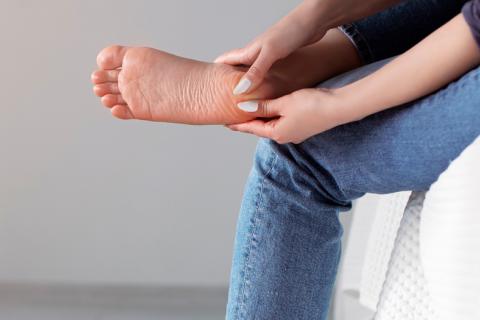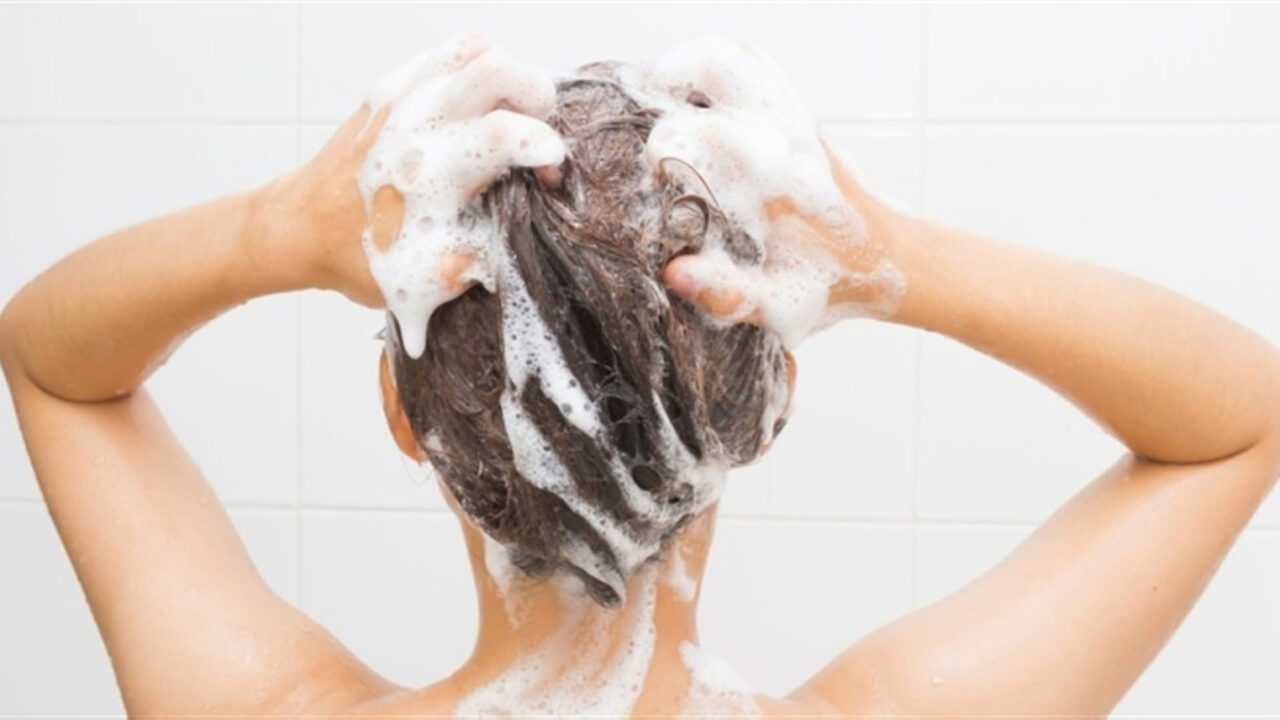Your body is constantly confronted with invisible aggressors which can affect your health and beauty. Germs in the environment can quickly find their way to the surface of your body and put it at risk. Personal hygiene is very important to remain healthy.
Good personal hygiene is the first step to good health. Habits such as washing your hands and brushing your teeth will help keep bacteria, viruses and various diseases away. A good Personal hygiene not only improve our look but also our health.
In this article, you will discover 17 personal hygiene tips which you can use to help you stay healthy and beautiful.
Here are 17 personal hygiene tips for maintaining health and beauty inside out:
- Bad Habits and Products to Avoid
Whether for men or women, it is strongly recommended not to use products that are too astringent for personal  hygiene. It is better to turn to chemical-free, gentle and dermatologically tested products. Also avoid all types of soap which aggressively dehydrates your skin. Likewise, do not use irritating personal hygiene products such as scrubs, skin bleaching on the pubic area, where the skin is sensitive.
hygiene. It is better to turn to chemical-free, gentle and dermatologically tested products. Also avoid all types of soap which aggressively dehydrates your skin. Likewise, do not use irritating personal hygiene products such as scrubs, skin bleaching on the pubic area, where the skin is sensitive.
Finally, very important, forget the gloves and other shower flowers: these accessories are nests for bacteria, and are of no interest during cleaning. Prefer a hand wash, once a day.
- Wash Your hands Regularly
It is often from the hands that microbes gain access to our body and can be the cause of many diseases such as diarrhea, influenza.
Therefore, it is important to wash your hands with soap and water, especially in the following situations:
- Before any meal
- After blowing your nose
- After touching unclean soiled objects
- After going to the toilet
- After you sneeze or cough into your hands
- After handling the garbage;
- After touching dogs or other pets.
- Keep Your face clean and protected
The skin of our face is, with that of the hands, the most exposed to external aggressions. You have to know how to clean, hydrate and take care of it. At the beginning of the day, you can lightly cleanse the skin of perspiration and sebum produced during the night with a make-up remover, a cleansing lotion or a foaming gel adapted to your skin type: dry, combination or oily.
The face contains most of the sense organs (sight, hearing, taste and smell), which is why washing it must be done several times a day, morning and evening is an essential minimum.
Hydration is just as important cleaning; it will allow the skin to protect itself from external aggressions, toxins, wind, sun or cold. Make-up or shaving products, like moisturizer, should be chosen based on the type of skin. If your skin is prone to blemishes, consider choosing products labeled “non-comedogenic”. Conversely, if your skin is dry, prefer products suitable for sensitive and reactive skin.
Finally, removing make-up and cleansing in the evening will allow the skin to breathe and get rid of the impurities accumulated in particular because of pollution, throughout the day. Once again, the use of a moisturizer after cleansing is essential.
- Practice good oral hygiene
Regular brushing of your teeth helps prevent gum disease, which has been linked to other diseases elsewhere in the body including heart disease and diabetes. It is especially important to brush your teeth after consuming sugary or acidic foods that cause tooth erosion.
To reduce the risks associated with poor oral hygiene, it is therefore necessary to:
- Eat a balanced diet, with a daily intake of fruits and vegetables
- Limit the intake of refined sugars
- Brush teeth after each meal with a soft brush and toothpaste.
- Keep your toothbrush clean and personal
- Stop smoking and/or alcohol consumption
- Visit your dentist regularly, about twice a year
- Treat any gum disease or bleeding at earliest time possible.
- Get familiar with your normal body odor
In both women and men, since the genitals are most of the time compressed in clothing, odors may be felt. However, these odors are quite normal and natural: they are intimate body odors, related to the humidity of the area.
Feminine hygiene is different from personal hygiene: it should in no case be astringent. In fact, the vulva, for example, is a fragile mucous membrane, which must be washed gently, with appropriate products. It should be done on a daily basis, and in some cases especially after sex.
- Properly Clean Your Vagina
The vagina flora self-regulates certain functions. In women, feminine hygiene is somewhat already taken care of by nature. Indeed, the vagina, thanks to its fluids produced continuously, cleans itself. These secretions help evacuate bacteria and keep the vaginal flora in balance. Next to it, the vulva serves as protection for the internal genitalia, in order to avoid as much as possible infections, chemical and bacterial attacks, which could go up to the vagina or even the uterus. In fact, it is important to respect the rules of hygiene and to clean your genitals up to twice daily.
However, over-cleaning would disturb the flora balance. During your period, for example, you may want to cool off several times a day, to remove any traces of blood. This helps to remove the blood so that it does not accumulate, thus preventing the proliferation of bacteria. For this, a simple burst of water may suffice, especially if the showers are repeated.
- Take a bath or shower every day
The skin is covered with a fatty film that it produces to protect it against dryness and microbial attack. A shower a day, not too long and with lukewarm water, allows you to get rid of dirt, sebum or sweat without attacking the skin or drying it out.
If you play sports, do not hesitate to take a second shower to rid the skin of toxins released during exercise, but not more, at the risk of damaging your epidermal cells. As for the face, wash it with a suitable personal hygiene product, different from that used for the body.
8. Chose Right personal hygiene products
Personal hygiene should be done with the softest products possible. If you are using shower gel, choose the non-irritant; that is, personal hygiene free of sodium laureth sulfate, sodium lauryl sulfate, or any harmful or irritating chemicals. You can also go for specialist brands, although they are often more expensive. In this case, intimate gels are a good alternative to shower gel.
You can opt for a mild, soap-free dermatological bar made with vegetable oils. Do not use Shampoo or any other product not suitable for the skin, and even less for areas as sensitive as the mucous membranes.
9. Say No to douching
Some women tend to wash thoroughly during their feminine hygiene. However, as we have seen, the vagina has a self-cleaning system which provides it with washing care. There is therefore no need to douche or wash its inside with soap, which could unbalance the vaginal flora and irritate the mucous membranes.
A simple shower with water is all it takes to rinse out vaginal fluids and get rid of unpleasant body odor.
10. Be more vigilant during …
You need to be more vigilant with your personal hygiene during the following:
Menstruation – Regularly changing sanitary napkins or tampons and washing twice a day will reduce your chances of getting infection.
- Pregnancy – Pregnant women must be very vigilant. This is because a poorly treated urinary tract infection can spread to the kidneys and thus cause premature labor.
- Menopause – The drop in the estrogen levels associated with menopause contributes to urinary tract infections and vaginitis. Women are more prone to UTI during this period.
11. Take care of your feet
Just like the hands, the feet need special attention. Whether in winter because of the cold or in summer because of perspiration, the feet are subjected to severe tests.
Good foot hygiene involves gentle washing, thorough drying and regular hydration. Proper drying avoids the risk of fungal infections such as athlete’s feet. Hydration can be preceded by a scrub which eliminates dead skin or accompanied by a massage which relaxes and contributes to good blood circulation.
Remember to change socks every day or after each period of sweating, this is another way to prevent yeast infection.
12. Consider Safe hair removal
Home hair removal has become a common practice for many women. From razor to wax to electric epilator, the methods vary and adapt to individual sensibilities. The only things that shouldn’t change are good hair removal habits.
A good waxing is done on clean and hydrated legs. Hydration helps prevent the little red bumps that can appear after waxing. To avoid ingrown hairs problems, it is important to follow the hair removal indication of the chosen product: shaving is always done from the bottom up, waxing the same. Consider using a moisturizer after each waxing or shaving.
13. Keep your body hydrated
Optimal hydration is as important as personal hygiene products. Choose skin hydrating products appropriate for your body or facial skin type, as the skin on the body tends to be dry for many women.
The technique of applying the product is also important: the skin must be clean, otherwise the pores will clog and cause pimples, especially on the face. To enhance the effect of the cream, massaging yourself is just as important. The massage makes it possible to penetrate the product more deeply and to reactivate the blood circulation.
A good hydration also requires, and we too often forget it, a diet rich in fruits and vegetables and sufficient water consumption.
14. Never wash too much
With the proliferation of shower gels, beauty products or deodorants that are increasingly attractive from a sensory point of view, we tend to overuse these products. Apart from the hands, which have to be washed several times a day, the rest of our body is damaged by washing it too much, scrub it, or epilate it.
Complaining about having tight skin often comes from washing it too much which alters the lipid film created by the skin to protect itself, without necessarily offering it an alternative solution. Moisturizing your skin is good, but not damaging it is even better. It is therefore essential to choose quality products, adapted to your skin and its fragility. Remember to read the labels carefully and avoid, among others, products with parabens and alcohol, shampoos with silicones and antiperspirants with aluminum salts.
15. Change your underwear every day
It’s obvious, but changing underwear every day is something some adults neglect to do. Wearing clean underwear every day is one of the first rules of personal hygiene. “Dirty or used underwear provide a breeding ground for bacteria, yeast, and fungi, and are often contaminated with fecal matter—that’s poo droppings,” says Sherry A. Ross, MD, an ob-gyn in Santa Monica, California and author of She-ology: The Definitive Guide to Women’s Intimate Health.
In a recent survey conducted by underwear company Tommy John, 45 percent of people surveyed said they wear the same pair of underwear for two days or longer. If you are one of them you need to change the habit.
16. Cut your nails regularly
Bacteria and germs are attracted to unclean places, including dirt under your nails. The longer our nails the mor at risk you are to develop bacterial or fungal infection. Often, we put our hands in our mouth, eyes, and nose. Long fingernails can be a breeding ground for bacteria. It is therefore best to keep your nails short by cutting them regularly.
Having long nails also can also cause food poisoning and personal injury. Eating with your hands while having long nails can allow bacteria and other infectious organisms to enter in your system. This can result in food poisoning. In addition, keeping long nails puts you at greater risk of injuring yourself and others as well.
17. Keep your Hair in great shape
Not many people know this, but washing your hair daily is not recommended. If your hair is dry, oily or dandruff sets in, a treating shampoo can be used alternately with a normal, mild shampoo. This preserves the effectiveness of the treating shampoo and does not attack the hair or the leather
 It is especially important to remember to rinse your hair well in order to prevent the remains of the shampoo from turning into dandruff. Rinsing the hair with plenty of clean cold water will help make it shinier.
It is especially important to remember to rinse your hair well in order to prevent the remains of the shampoo from turning into dandruff. Rinsing the hair with plenty of clean cold water will help make it shinier.
For drying, pat your hair with a towel before using a hairdryer and remember to keep a distance of 15 cm between the hairdryer and the scalp or hair. Do not dry your hair with too hot air.
Here are some simple steps for a healthy and beautiful hair:
- Use appropriate products to rid the skin of grease, dust and dandruff.
- Keep your hair brushes and combs clean and personal.
- Do not cover your hair at night if it is not necessary
- Do not wear another person’s hat or scarf
- Scalp wounds should be carefully treated.
Thank you for reading the article the end. Remember to share it with your social media friends.



